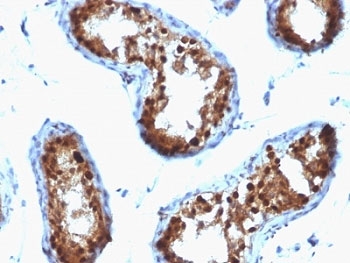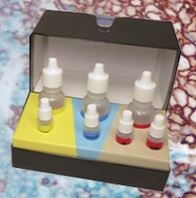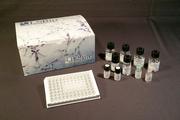Login
Registration enables users to use special features of this website, such as past
order histories, retained contact details for faster checkout, review submissions, and special promotions.
order histories, retained contact details for faster checkout, review submissions, and special promotions.
Forgot password?
Registration enables users to use special features of this website, such as past
order histories, retained contact details for faster checkout, review submissions, and special promotions.
order histories, retained contact details for faster checkout, review submissions, and special promotions.
Quick Order
Products
Antibodies
ELISA and Assay Kits
Research Areas
Infectious Disease
Resources
Purchasing
Reference Material
Contact Us
Location
Corporate Headquarters
Vector Laboratories, Inc.
6737 Mowry Ave
Newark, CA 94560
United States
Telephone Numbers
Customer Service: (800) 227-6666 / (650) 697-3600
Contact Us
Additional Contact Details
Login
Registration enables users to use special features of this website, such as past
order histories, retained contact details for faster checkout, review submissions, and special promotions.
order histories, retained contact details for faster checkout, review submissions, and special promotions.
Forgot password?
Registration enables users to use special features of this website, such as past
order histories, retained contact details for faster checkout, review submissions, and special promotions.
order histories, retained contact details for faster checkout, review submissions, and special promotions.
Quick Order
| Catalog Number | Size | Price |
|---|---|---|
| LS-C392401-100 | 100 µg (1 mg/ml) | $574 |

Monoclonal Mouse anti‑Human SUMO2 Antibody (clone SPM572, Azide‑free,BSA‑free, IHC, IF, WB) LS‑C392401
Monoclonal Mouse anti‑Human SUMO2 Antibody (clone SPM572, Azide‑free,BSA‑free, IHC, IF, WB) LS‑C392401
Antibody:
SUMO2 Mouse anti-Human Monoclonal (Azide-free, BSA-free) (SPM572) Antibody
Application:
IHC, IHC-P, IF, WB, Flo
Reactivity:
Human
Format:
Unconjugated, Azide-free, BSA-free
Other formats:
Toll Free North America
 (800) 227-6666
(800) 227-6666
For Research Use Only
Overview
Antibody:
SUMO2 Mouse anti-Human Monoclonal (Azide-free, BSA-free) (SPM572) Antibody
Application:
IHC, IHC-P, IF, WB, Flo
Reactivity:
Human
Format:
Unconjugated, Azide-free, BSA-free
Other formats:
Specifications
Description
SUMO2 antibody LS-C392401 is an unconjugated mouse monoclonal antibody to human SUMO2. Validated for Flow, IF, IHC and WB.
Target
Human SUMO2
Synonyms
SUMO2 | HSMT3 | SMT3 homolog 2 | SMT3A | Sentrin 2 | Smt3B | SMT3H2 | SUMO-2 | SUMO-3 | Sentrin-2 | Ubiquitin-like protein SMT3A | Ubiquitin-like protein SMT3B
Host
Mouse
Reactivity
Human
(tested or 100% immunogen sequence identity)
Clonality
IgG1,k
Monoclonal
Clone
SPM572
Conjugations
Unconjugated
Purification
Protein G purified
Modifications
Azide-free, BSA-free.
Also available Unmodified.
Immunogen
Recombinant human protein.
Specificity
Human SUMO2
Applications
- IHC
- IHC - Paraffin (0.5 - 1 µg/ml)
- Immunofluorescence (0.5 - 1 µg/ml)
- Western blot (0.5 - 1 µg/ml)
- Flow Cytometry (0.5 - 1 µg/10E6 cells)

|
Performing IHC? See our complete line of Immunohistochemistry Reagents including antigen retrieval solutions, blocking agents
ABC Detection Kits and polymers, biotinylated secondary antibodies, substrates and more.
|
Usage
The applications listed have been tested for the unmodified form of this product. Other forms have not been tested. This mAb reacts with both SUMO-2 and SUMO-3. The small ubiquitin-related modifier (SUMO) proteins, which include SUMO-1, 2 and 3, belong to the ubiquitin-like protein family. Like ubiquitin, the SUMO proteins are synthesized as precursor proteins that undergo processing before conjugation to target proteins. Also, both utilize the E1, E2 and E3 cascade enzymes for conjugation. However, SUMO and ubiquitin differ with respect to targeting. Ubiquitination predominantly targets proteins for degradation, whereas sumoylation targets proteins to a variety of cellular processing, including nuclear transport, transcriptional regulation, apoptosis and protein stability. The unconjugated SUMO-1, 2 and 3 proteins localize to the nuclear membrane, nuclear bodies and cytoplasm, respectively. SUMO-1 utilizes Ubc9 for conjugation to several target proteins, which include MDM2, p53, PML and RanGap1. SUMO-2 and 3 contribute to a greater percentage of protein modification than does SUMO-1 and unlike SUMO-1, they can form polymeric chains. In addition, SUMO-3 regulates beta-Amyloid generation and may be critical in the onset or progression of Alzheimer s disease. The optimal dilution of the SUMO-2/3 antibody for each application should be determined by the researcher. Staining of formalin-fixed tissues requires boiling tissue sections in 10mM citrate buffer, pH 6.0, for 10-20 min followed by cooling at RT for 20 minutes.
Presentation
1X PBS
Storage
Store at 2°C to 8°C.
Restrictions
For research use only. Intended for use by laboratory professionals.
About SUMO2
Publications (0)
Customer Reviews (0)
Featured Products
Source:
Human
Tag:
His, N-Terminal
Request SDS/MSDS
To request an SDS/MSDS form for this product, please contact our Technical Support department at:
Technical.Support@LSBio.com
Requested From: United States
Date Requested: 3/13/2025
Date Requested: 3/13/2025











